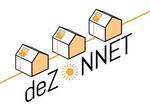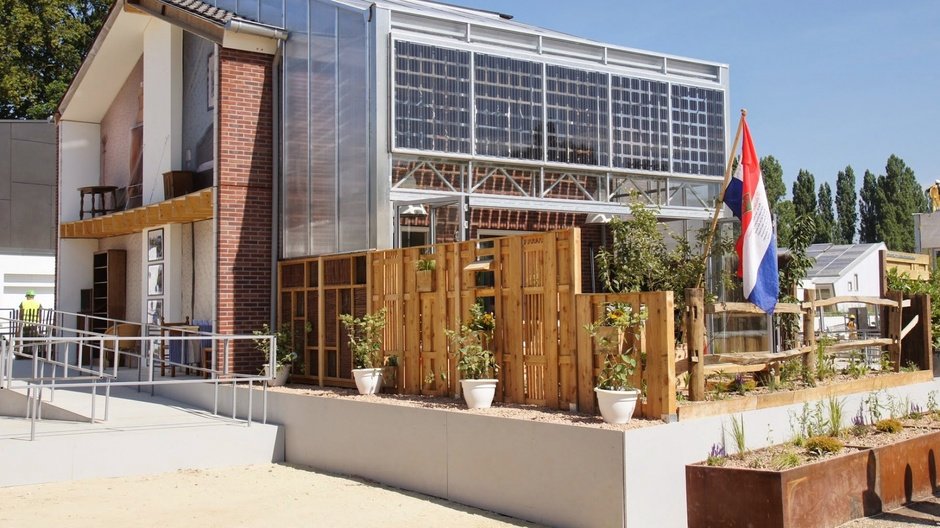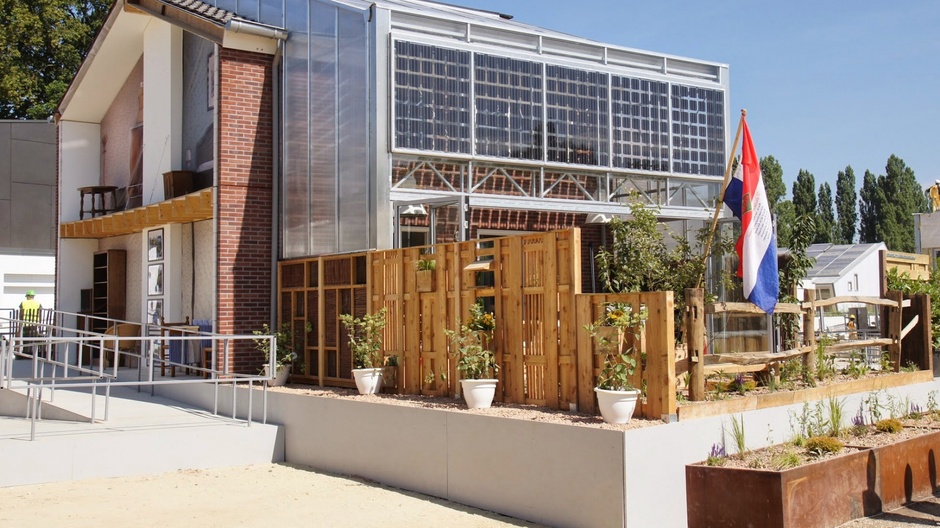Theme 1: Zero-energy buildings
Future-proof buildings and neighbourhoods
We need:
• New buildings that go beyond energy neutrality, consider circularity, and are comfortable and healthy.
• Existing buildings that are equipped with affordable future-proof solutions enabling connection to sustainable energy supply.
Research challenges
• Buildings designed for the local climate, providing thermal, visual and acoustical comfort (bioclimatic design).
• High-performance materials and components taking into account embodied energy and circular use.
• Technologies for feasible renovation solutions that enable sustainable energy supply and a fast renovation process.
• New approaches for assessing and integrating the ambitions on different aspects of the energy transition.
Examples of TU Delft projects
 DeZONNET
DeZONNET
A new design for making homes free of natural gas through locally generated solar heat has received a subsidy from The Netherlands Enterprise Agency (RVO) in the Energy Top Sector. This design also saves a lot more CO₂ than other natural gas-free solutions. TU Delft is the coordinating university for the project and will develop and test the so-called 'DeZONNET’ concept together with e.g.: Deltares and Greenvis.
For more information: click here
LT Ready (= Realistic and affordable insulation for low temperature heating)
This MVI Energy project focuses on the research topic 'Large-scale sustainability of the built environment'. Developing innovative and affordable concepts and materialisations of energy renovation, not to achieve NoM only, but so there can be heated with a low temperature (<55 ° C). The end result will contain 2 pilot houses with LT-Ready implemented measures and a LT-Ready tool with an overview of possible combinations of isolation and ventilation options for LT-Ready renovations.
For more information Click here.
Prêt-à-Loger: house with a skin
This project developed an ambitious renovation solution for a very common type of house in the Netherlands: the post-war row house. By putting an extra layer over the existing house, it becomes energy neutral and more space is added, while its living quality remains untouched. The project was executed by a team consisting of 53 TU Delft students from all corners of the world, and won top honours at the Solar Decathlon Europe 2014.
For more information click: PretaLoger.eu
Smart Urban Isle
This project explores the possibilities of neighbourhoods to become ‘Smart Urban Isles’: areas – possibly around a public building – where energy is generated, exchanged and stored to locally balance supply and demand as much as possible. Research also focusses on finding an optimum between building renovation and collective neighbourhood energy solutions. TU Delft provides expertise on bioclimatic design for existing buildings and smart energy networks at the neighbourhood scale. Nine case studies are developed, two of which are in the Netherlands (Haarlem and Amsterdam).
For more information click: SmartUrbanIsle.eu
Contact for this Urban Energy Theme is Sabine Jansen or Thaleia Konstantinou


![[Translate to English:] [Translate to English:]](https://filelist.tudelft.nl/_processed_/0/4/csm_Solar%20Urban%20tegel_494f3278b4.jpg)